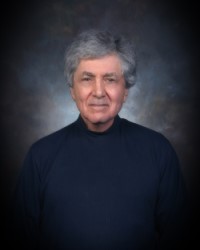Author Interview: Paul Corson – Interview #2

The books shown on the left are by Paul Corson. Click on the cover to order.
This interview was conducted by Timea Barabas on
September 20, 2020.
Timea Barabas: What was your main motivation for writing “Tales from the Other Side” as a companion piece for your other book, “Regaining Paradise”?
Paul Corson: Overall, my goal was to inspire individuals to listen to their higher angels that are drowned out through the intention of the architects of society.
Timea Barabas: The two books are quite different; “Regaining Paradise” is perhaps a more declarative piece, you dissect a perspective, heavily relying on science, while “Tales from the Other Side” focuses more on your personal experience and has a few pieces of fiction too. How would you compare the writing process of the two books?
Paul Corson: The goals of the two books are essentially the same: to encourage the ready to cast aside dogma that was designed essentially to control you. American engineer and author Willis Harman observes in Global Mind Change (1987) that “We are literally hypnotized from infancy by the cultural milieu in which we are immersed.”
Harman lamented that because Western culture sees the world within a narrow, self-referencing material context we are facing a spiritual and moral crisis. He suggested we would be better served if we allowed our mind to expand to enter a higher state of consciousness, a state in which we will be less self-absorbed and more nurturing we would build a move loving, equitable world..
Timea Barabas: Was it difficult to select the autobiographical stories to be featured in the book? How did you decide on them?
Paul Corson: I selected the stories that fit most snugly into the storyline of the ongoing all-creative presence of the Other Side.
Timea Barabas: Which part of “Tales from the Other Side” proved to be more challenging and which was more fun to write (the fiction or non-fiction)?
Paul Corson: Both parts were fun to write but involved using different aspects of the mind. The autobiographical part involved recalling the dialogue and the events that took place, while the stories required that I be more creatively fanciful.
Timea Barabas: In the autobiographical part, there are a lot of instances, where you choose to intervene in a tense and difficult situation. Usually, there are other bystanders as well, who remain passive. What pushes you to intervene? How do you think that a passive bystander can become an active one?
Paul Corson: I intervened because I was called to do so. In the story of the burning house, recall that I felt compelled to race to the fire when all that presented was smoke in the far distance whose source was undeterminable. I believe that individuals who intercede in these situations are “pushed” to do so. It’s largely an involuntary action on their part.
There must be a tipping point for passive folks in which there sense of decency, fairness and justice, kicks in compelling them to interceded. That’s assuming those qualities are part of their character and that they can muster up the courage to act.
Timea Barabas: How can someone recognize a message from the “Other Side”? What would be some of the signs?
Paul Corson: The message could be a thought or an occurrence that is out of the ordinary. The message could be preceded by an overriding otherworldly presence. If you’re frightened at first, take a breath and leave yourself vulnerable. Have faith that the Other Side will not harm you but will enlighten you..
Timea Barabas: Do you believe that anyone can experience the “Other Side” on this side?
Paul Corson: There have been reports that Mafia hit men were reached by the Other Side who dutifully told their mob bosses that they wanted out, whatever the cost. Because of that, I would believe that anyone could experience the Other Side.
Timea Barabas: If people want to connect to the “Other Side”, how should they proceed?
Paul Corson: I would suggest that prayer and also leading a life that directed toward the greater Good could make the ‘connecting’ more likely.
Timea Barabas: What do you hope that the reader will take away from this book?
Paul Corson: My hope is that readers will be moved by the book to understand that there is an Other Side that actively interacts in their daily lives. The poem describes how we can transform ourselves from being ego-directed to becoming spiritually directed. In this state we become free to see God and to realize our potential to be nurturing individuals. The .two short stories are also a call to set higher standards for ourselves. The stories also speak about the fear we all harbor that can be manipulated by those in power, which all too often serves no good end. The second story draws attention to human greed and the fact that it is destroying our planet.
Timea Barabas: Do you have any future plans for new publications?
Paul Corson: I have one small project in mind that involves a magical pair of glasses which reveals the omnipresent creative energy.
Timea Barabas: Thank you for taking the time to do this interview for Bestsellersworld.com.
Ⓒ 2022 BestSellersWorld.com | All Rights Reserved | Design + Development by The Unglitch
